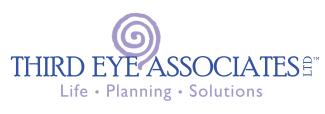
A Glimpse at the New Relief Package
The U.S. Congress recently passed, and the former President signed, the 5,593 page Consolidated Appropriations Act of 2021. Experts are still mulling over what the impact will be on ordinary citizens. The Act includes the following:
- stimulus checks;
- tax planning relief provisions;
- a break for people experiencing high medical expenses during the pandemic; and
- a new paycheck protection program extension.
Here’s what we know so far:
First, new legislation provides for so-called “stimulus” checks, with a “base” credit of $600 per eligible individual plus $600 more for any dependent child (technically, any children for whom a Child Tax Credit may be claimed). As with the CARES Act, eligibility starts phasing out for individuals earning more than $75,000 of adjusted gross income, or joint filers with over $150,000 AGI.
These phaseouts are based on the 2019 tax return, which seems unfair since the economic hardships the bill was designed to address took place in the final three quarters of 2020. If the taxpayer’s 2020 income calculation indicates a larger check amount, the government will issue an additional check to make up the difference. (If someone receives a stimulus check based on 2019 income and then reports higher 2020 income, that person would be ineligible to receive the check. There will be no requirement to pay money back to the government.)
The new legislation also extends regular unemployment compensation benefits for an additional 11 weeks and adds $300 a week to the unemployment checks. So-called “pandemic unemployment assistance” for individuals who wouldn’t normally qualify for unemployment benefits (such as self-employed persons) was also extended for 11 more weeks.
On the tax front, the hurdle for deducting medical expenses in any given year was reduced from 10% to 7.5%, meaning that anything over that percentage of adjusted gross income would now be deductible on your next tax return. The bill extends a provision from the CARES Act relating to charitable deductions. People can take a full deduction up to 100% of their AGI for any cash donation to a public or private charity (but not a donor-advised fund).
In the bill, Congress did not extend the temporary waiver of required minimum distributions, which means that people over age 72 will have to resume taking their RMDs in 2021.
What else is buried in those 5,593 pages?

